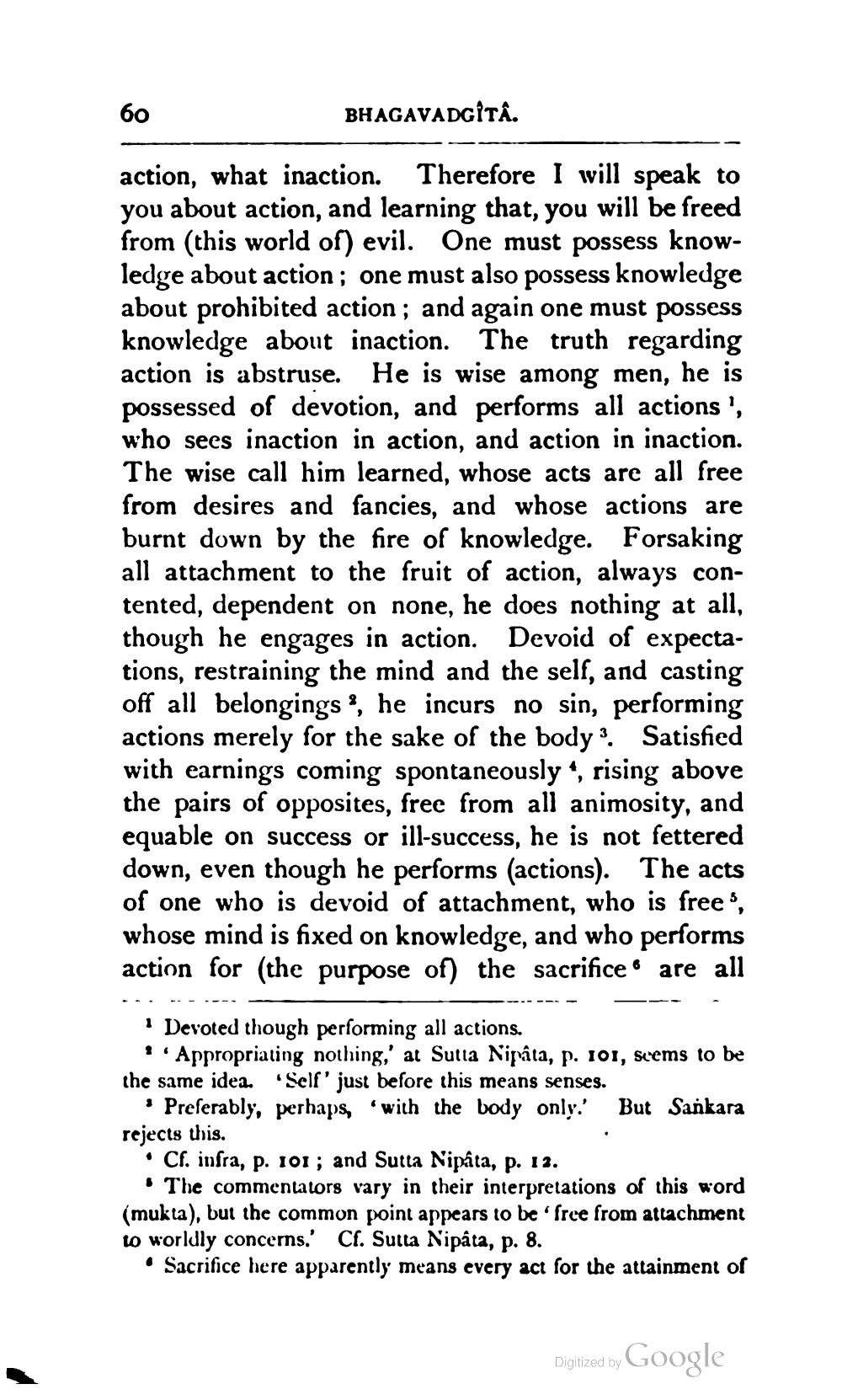________________
60
BHAGAVADGITA.
action, what inaction. Therefore I will speak to you about action, and learning that, you will be freed from this world of) evil. One must possess knowledge about action; one must also possess knowledge about prohibited action; and again one must possess knowledge about inaction. The truth regarding action is abstruse. He is wise among men, he is possessed of devotion, and performs all actions', who sees inaction in action, and action in inaction. The wise call him learned, whose acts are all free from desires and fancies, and whose actions are burnt down by the fire of knowledge. Forsaking all attachment to the fruit of action, always contented, dependent on none, he does nothing at all, though he engages in action. Devoid of expectations, restraining the mind and the self, and casting off all belongings, he incurs no sin, performing actions merely for the sake of the body3. Satisfied with earnings coming spontaneously , rising above the pairs of opposites, free from all animosity, and equable on success or ill-success, he is not fettered down, even though he performs (actions). The acts of one who is devoid of attachment, who is free 5, whose mind is fixed on knowledge, and who performs action for the purpose of) the sacrifices are all
* Devoted though performing all actions.
'Appropriating nothing,' at Sulia Nipata, p. 101, seems to be the same idea. "Self' just before this means senses.
• Preferably, perhaps, with the body only. But Sankara rejects this.
• Cf. infra, p. 101 ; and Sutla Nipâta, p. 12.
• The commentators vary in their interpretations of this word (mukta), but the common point appears to be 'free from attachment lo worldly concems.' Cf. Sulla Nipata, p. 8.
• Sacrifice here apparently means every act for the attainment of
Digitized by Google




